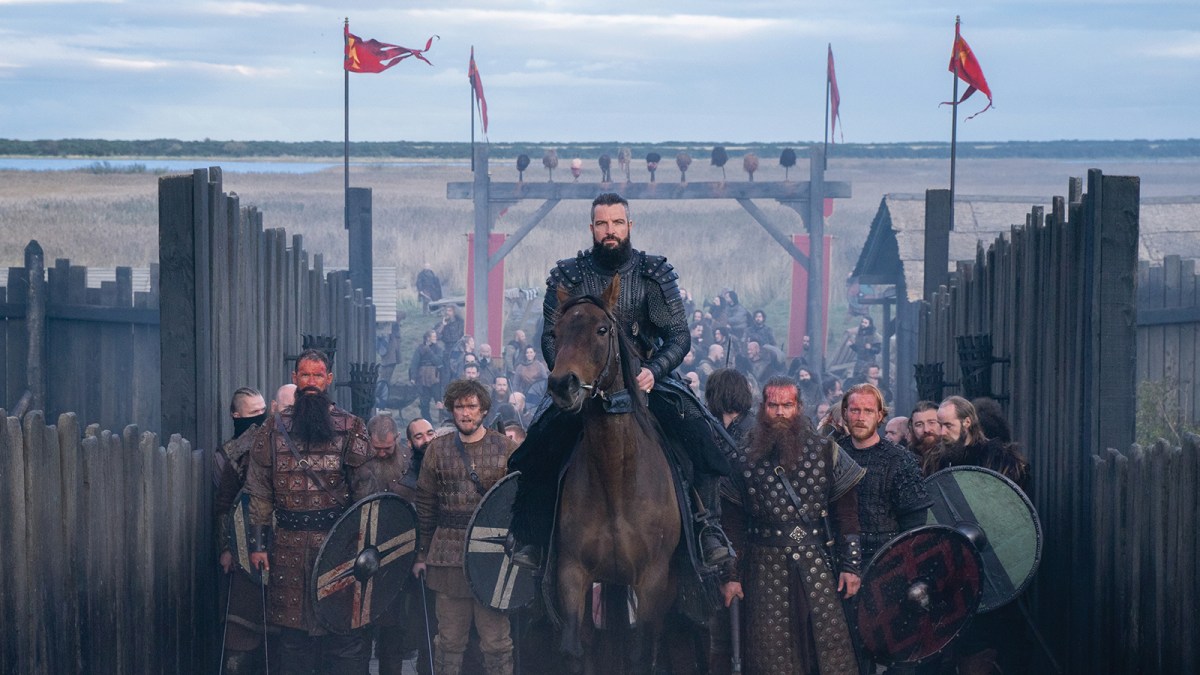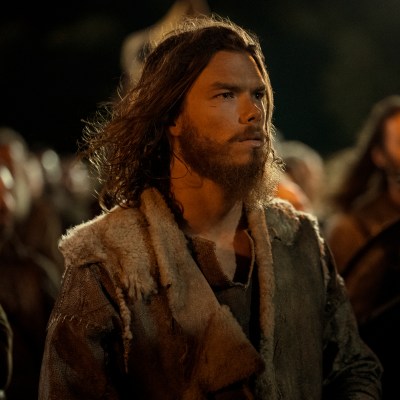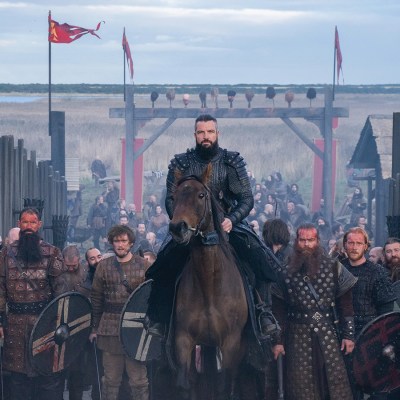Bradley Freegard on Taking Up the Crown as King Canute in Vikings: Valhalla
Vikings: Valhalla actor Bradley Freegard discusses the opportunity to portray a historical king and more in this exclusive interview!

This article is from the Den of Geek x Vikings: Valhalla Special Edition Magazine created in paid partnership with Netflix. You can read the full digital issue here!
King Canute, or Cnut, “the Great” was Emma of Normandy’s second husband. He became King of England, Denmark, Norway, and part of Sweden. He was a Danish prince who invaded England in 1015 and became King in 1016 after both his rivals–Emma’s first husband Æthelred the Unready and her step-son Edmund Ironside–remarkably, and conveniently died. Canute married Emma to cement his rule of England, and later inherited the Scandanavian thrones.
Not every actor lands the role of a famous historical king, but Bradley Freegard has taken up the crown with authority in his role as King Canute in Vikings: Valhalla. The actor told Den of Geek about filming aboard Viking longships and how the cast created their 11th century accents.
Den of Geek: What are King Canute’s central character traits?
Bradley Freegard: He’s a new generation of Viking leader. He understands the benefits to be gained from allegiances, maybe more so than other Viking rulers before. He’s a very successful ruler historically—probably one of the most successful Viking rulers that has ever been. He changed the course of history through his leadership qualities and his ability to manage a kingdom peacefully. He understands that he needs to make allies and allegiances to be able to maintain power. But also, he’s a Viking king; cross him at your own peril.
King Canute is a direct ancestor to the modern Queen of Denmark; how did Danes in the cast react to your performance?
I met quite a few Danish people on set, and the first episode is directed by Niels [Arden Oplev], who’s Danish. I felt the pressure a little bit! But luckily, I think that they gave me the thumbs up in the end.
Read more
What kind of historical research did you do?
There are some great historical books out there about Canute… [and] I read a couple of the big tomes about him. A fascinating guy, very good at maintaining power, which was something not to be sniffed at in those times. It was such a brutal, ruthless era so to be able to keep everyone around the table and to keep everyone appeased and happy was some feat.
What were the boat scenes like?
The boats are very much real. We had some amazing days out on the boats, rowing. We have a little bit of help. We have a fantastic marine crew who are all highly qualified seamen. Canute doesn’t do much rowing, obviously—he has a very nice throne at the back of the boat.
How authentic are the costumes?
My costume was just phenomenal. The costume department is second to none. Playing a king, you’d expect the costumes to be quite grand…because of his status within the world. But the level of detail, down to the hundreds of extras—everyone has amazing costumes. They’re all handmade, they’re all authentic materials, leather, and the kind of textiles that they would’ve had. You feel like a million dollars when you’re in costume.
The series involves a lot of physical combat scenes. Were you familiar with period weaponry?
I’ve done Shakespearean roles, so there’s obviously stage combat involved in a lot of those. Canute doesn’t get his hands as dirty as some, so I relish the opportunity to get my hands on some double-headed ax action whenever possible.
How did the cast develop their accents?
In Vikings, Valhalla, the world has now grown exponentially; it’s a much more diverse place than it was a hundred years ago when the original Vikings series finished. We have people from different parts of the world—England, France, Denmark, Norway, these accents are all different. But to try and pin down what a Danish or Norwegian accent might have sounded like in the 11th century is difficult because obviously accents change through the migration of people throughout the millennia. We had a great dialect coach, Poll [Moussoulides], and he did a lot of research and found that probably the nearest accent to the 11th century accent would’ve been the Icelandic accent. We took that accent as the base.
What do you hope viewers will take away from the show?
To have enjoyed being in the Viking world. That’s why they’re there: to see the Viking world and hear about these fabled legends of the Viking era. They want some dramatic scenery, some amazing sets, some great battle scenes, some great historical events. And hopefully we can deliver that for them. It’s a rich historically based piece that people can just sort of enjoy and immerse themselves in.


